China, Chile ready for new level: minister
Updated: 2014-09-08 03:43
By ZHANG YUCHEN in Beijing(China Daily Latin America)
|
||||||||
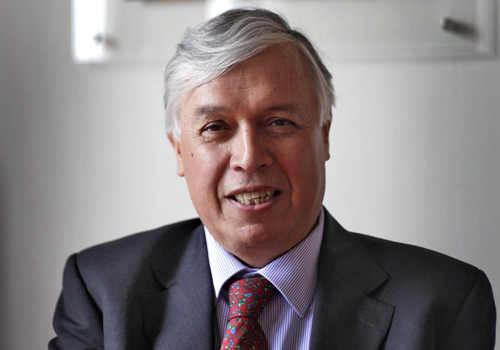 |
|
Carlos Furche, head of Chile's agricultural sector. [Photo / China Daily] |
Carlos Furche looked a little tired, despite expressing his satisfaction with the signing of protocols on Sept 5 in Beijing.
The head of Chile's agricultural sector began a trip to Asia a week ago, stopping at South Korea to sign food product export agreements. His final destination was the furthest country from his own - China.
Minister Furch led a delegation of representatives from the public and private sectors of Chile to sign with the General Administration of Quality Supervision, Inspection and Quarantine (AQSIQ) four agreements, including a memorandum of understanding for the first electronic certification among Latin American countries and two food export protocols.
"Once the public policy completes the process of opening the market, the market will increase rapidly all on its own," he said in an interview with China Daily in the Embassy of Chile in Beijing.
Since 2006, when Chile and China signed a Free Trade Agreement (FTA), trade volume between the two countries has increased five times, said the minister, with 25 percent of Chile's exports going to China, it is now Chile's largest trading partner in the world.
Furche said the FTA with China was among the most successful agreements signed in bilateral trade. China buys more than 500 different kinds of products from Chile, including wine, fruit, salmon, meat, milk and seafood. Chile is now China's second largest trading partner in South America.
"Chile is a very open economy, even in the agricultural sector," he said. "We export a lot of food and import a lot of food, we import wheat, corn and soy beans."
Between 1994 and 2004, Furche served as National Director of the Office of Agricultural Studies and Policies of the Ministry of Agriculture. During his tenure, various support instruments for the sector's development were launched and the commercial opening was enhanced for the international insertion in the Chilean agriculture.
"It was impossible to increase our agricultural effectiveness except by importing products as well as services, by opening to the international market and lowering our import tax. That's what we had to do," said Furche.
Chile's plan for increasing investment, which is also its strategy positioning China as one of its major investors like the US, Canada, Australia and Japan, covers not only the mining sector, but also the energy and service sector.
China enterprises can invest in many areas of the agricultural sector as well, like wine production. Chile ranks second as the favorite imported wine for Chinese consumers, only surpassed by France. Total wine consumption in the country reached 125 million 9-liter cases. According to Wine Intelligence, there were 4.6 million consumers of Chilean wine in China in the first half of 2013, of which 1.6 million were frequent users.
China is also expected to invest in fruit production. During the past six months, Chile exported to China fruits worth more than $392 million, positioning China as the main destination market for Chilean fruit in Asia. The main products currently exported include table grapes, cherries, apples, kiwis, plums and blueberries.
According to the export protocols signed on Sept 5, Chile will export walnuts and avocados, which are also the main Chilean food products of high quality.
"I really think the future of Chilean agricultural products is in the international market and we have a very privileged geography. For example, we produce cherries in December when countries in Northern Hemisphere are in chilly winter," said Furche. "We have high standards of sanitary conditions."
Nearly 300 of the 700 Chilean companies in China have their offices based in Shanghai, the economic center of the country. All last week, Shanghai had an annual promotion campaign for Chilean agricultural products in the city.
"We always say to our private sector that they have to look for other places within China," said Furche, who has traveled to the country more than dozen times since 2000. "There are a lot of good places in the country."
He also met with people from the Chinese Academy of Agricultural Sciences on Sept 5.
"We need to go to the next step and that step is cooperation in research, agricultural innovation, services and investment," he said. "I think we need to take our relationship to a new level."
zhangyuchen@chinadaily.com.cn
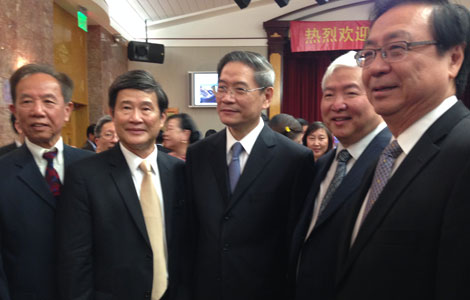
 Taiwan affairs chief visits US
Taiwan affairs chief visits US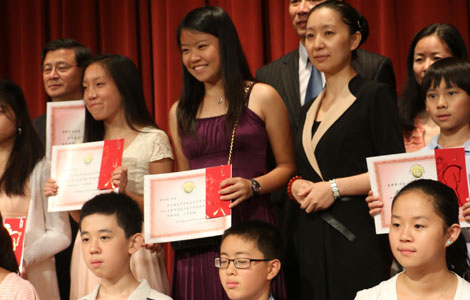
 Chinese embassy in Washington holds Teachers' Day reception
Chinese embassy in Washington holds Teachers' Day reception
 Walt Disney 90th Anniversary Exhibition held in Beijing
Walt Disney 90th Anniversary Exhibition held in Beijing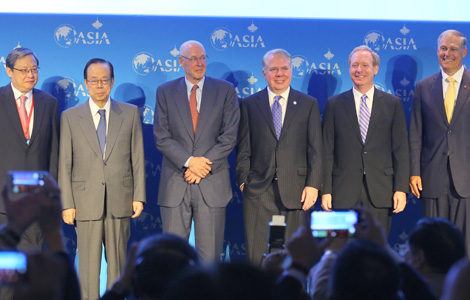
 Boao Forum for Asia Seattle conference kicks off
Boao Forum for Asia Seattle conference kicks off
 Chinese film festival goes mainstream
Chinese film festival goes mainstream
 New York Fashion Week: Day 2
New York Fashion Week: Day 2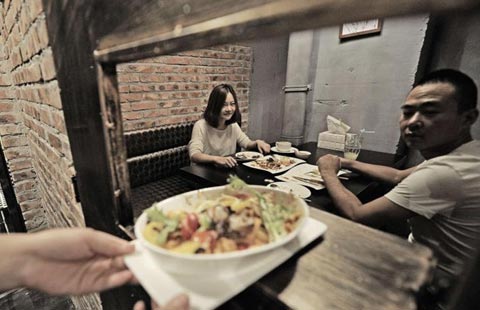
 First prison themed restaurant opens in Tianjin
First prison themed restaurant opens in Tianjin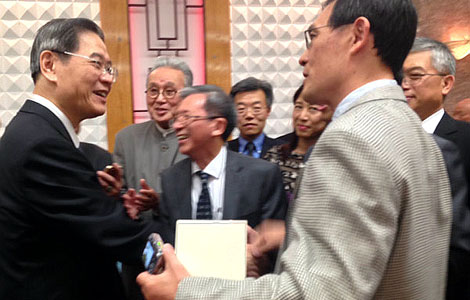
 Zhang Zhijun welcomed at Chinese Consulate in San Francisco
Zhang Zhijun welcomed at Chinese Consulate in San Francisco
Most Viewed
Editor's Picks

|

|

|

|

|

|
Today's Top News
Tsinghua, Berkeley prepare joint institute
Moon Festival on the fast rise
Alibaba's IPO to set a new record
Hainan Airlines gives tourists to Beantown Chinese maps
Obama to give speech Wednesday on IS
Kathy Griffin, Howard Stern at Joan Rivers funeral
Hainan Air offers Chinese-language Boston map
Obama delays acting on immigration
US Weekly

|

|







